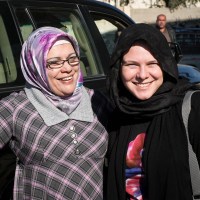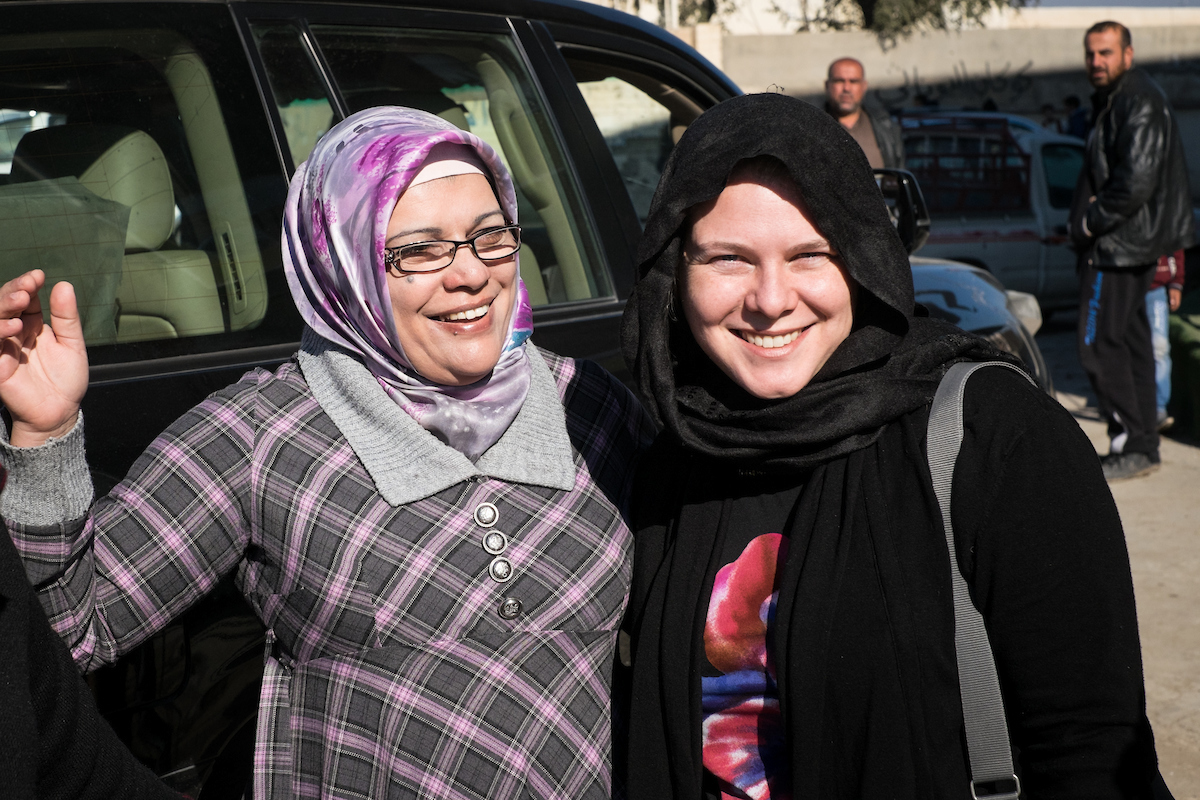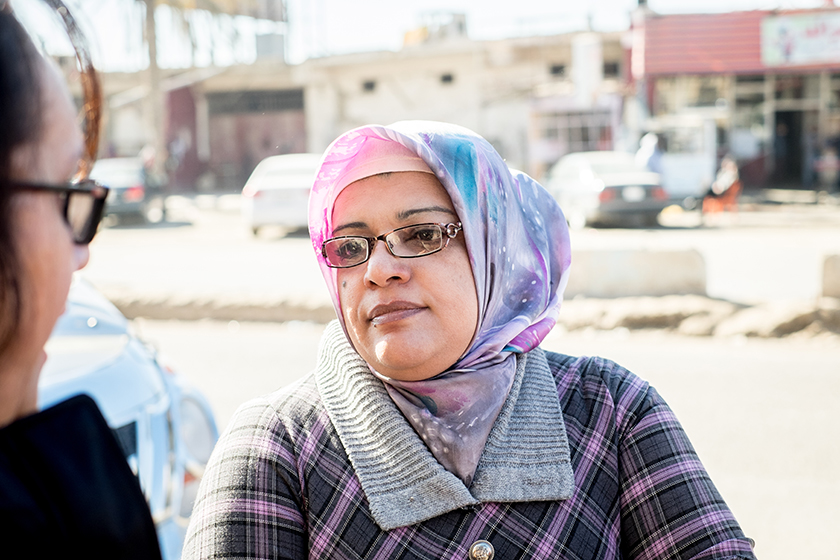
“During the embargo [crippling sanctions placed on Iraq beginning in 1990], my financial status was so bad, I had to do something. I borrowed some money, bought a small sewing machine, and was so successful with it. Gradually, I got a factory of my own. Then I opened another factory in Kirkuk…”
“I borrowed two million dinars [$1,600], opened a shop and started selling dishdasha [traditional men’s clothing].”
Impressive success, isn’t it?
What if I told you that she was married at 15 and unable to go very far in school? Or that she was abused by her family? Or that the government took her factory, and then ISIS took the retail business she built after?
Abuse, injustice, displacement. There aren’t many people who could stand under the pressures that Muna faced. But in Muna, the pressures that would’ve crushed most of us created a diamond instead.

Strength and ingenuity are the hallmarks of Muna’s life. As a girl, she taught herself to sew, and later transformed that skill into a series of successful businesses. When she was displaced by ISIS, Muna flourished in various roles in displacement camps—by helping other families like hers. She discovered that she was good at managing camps, at organizing projects, and provided detailed reports on the needs in those camps. She was the first to deliver aid to two villages freed from ISIS when the tide against them had just begun to turn.
When Muna felt frustrated by the poor way society sometimes treats women here in Iraq, she sat down and wrote two novels exploring themes of abuse. She desperately wants her words to bring change—for women and for her country.
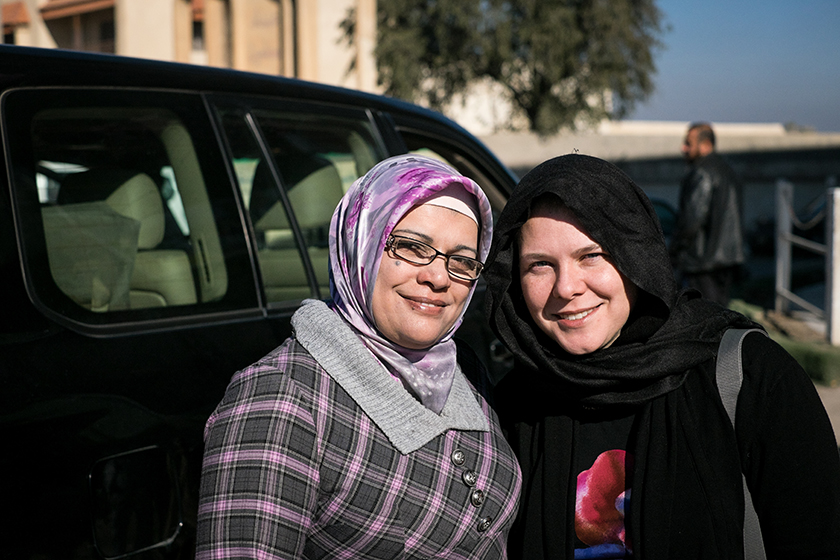
Now, as the manager of our empowerment projects in Tikrit (north of Baghdad), Muna is helping displaced women start their lives over through small business.
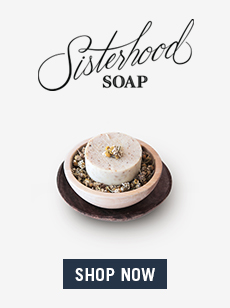
For all of Muna’s many skills, this powerhouse really comes into her own when working one-on-one with women. We saw Muna in action recently when we met with her and a woman named Khalida, a candidate for a small business grant.
“Maybe you should ask my husband,” the Khalida told us. “I don’t know if I can do this. I don’t know if I’m strong enough.”
No one would blame Khalida for being nervous about starting a business. A housewife her whole life and now displaced, she didn’t think she had any skills. In addition, Khalida lost half a leg (and her husband lost his hearing) in an ISIS bomb blast. She was depressed, afraid, and yet desperate to feed her children.
Muna was quick to respond. “Look at you! Look at what you’ve done. You are strong! And you can do this yourself. I don’t want to hear from you that you’re not strong enough to do this. Because I see how you were strong enough to survive losing your leg, strong enough to survive ISIS, strong enough to give birth.”
Muna shared with Khalida some of her own stories of loss, and in that moment, sisterhood happened.
Suddenly, Khalida knew she’s not in this alone. Muna is in her corner—we are in her corner—and will help her figure out a business that’s right for her.

This week, Khalida opened her new business, thanks to help from Muna. She is selling clothes, something she can be successful at even with her mobility issues. Khalida is working hard to provide for her family and to regain some of what they lost.
In helping others, Muna discovered herself. She plans to spend the rest of her life helping women and families improve their lives. Abuse couldn’t hold her down. ISIS and displacement couldn’t hold her down.
When you invest in small business grants for Syrian and Iraqi women, you are also investing in Muna, and we promise you—investing in her will pay dividends for decades to come!
Invest in the women who are rebuilding their communities.

